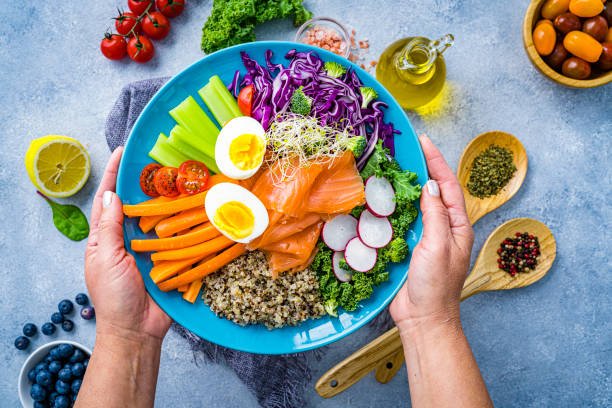Lose Fat Without Losing Your Mind (or Gaining It Back)
Let’s be honest: most people don’t just want to lose weight—they want to lose it fast, keep it off, and not feel miserable while doing it.
But here’s the problem: the internet is full of BS. Detox teas, magic pills, 1,200-calorie starvation plans… all promising quick results and leaving you tired, hungry, and heavier a month later.
This article cuts through the noise with real, science-backed strategies that help you lose weight fast—but sustainably. Yes, you can see results quickly and make them last. But you need a smarter approach—not just a stricter one.
1. Start With a Sustainable Calorie Deficit

🔬 What the science says:
Weight loss boils down to a calorie deficit—burning more calories than you eat. But too big of a deficit, and your metabolism tanks, your energy disappears, and you start losing muscle.
Studies show that a moderate deficit (about 500–750 calories/day) leads to fat loss without major side effects.
✅ What to do:
- Multiply your body weight (lbs) by 11–13 to get a rough idea of your fat-loss calorie range.
- Track your calories for 1–2 weeks using MyFitnessPal, Chronometer, or MacrosFirst.
- Don’t starve yourself. Eat enough to function, train, and sleep well.
2. Prioritize Protein at Every Meal
🔬 What the science says:
Protein keeps you full, boosts your metabolism, and protects muscle mass during weight loss. High-protein diets lead to more fat loss and better body composition.
One study found that people eating twice the recommended daily intake of protein lost more fat and maintained more lean muscle.
✅ What to do:
- Aim for 0.8–1 gram of protein per pound of body weight daily.
- Include a source of lean protein at every meal:
- Chicken, turkey, eggs, Greek yogurt, tofu, lentils, cottage cheese, protein powder.
- Snack smart: skip the chips and grab jerky, protein bars, or boiled eggs.
3. Lift Weights—Don’t Just Do Cardio
🔬 What the science says:
Cardio burns calories, but resistance training builds and preserves muscle—which boosts your metabolism long-term. People who lift while dieting lose more fat and less muscle.
Plus, strength training has been linked to better insulin sensitivity, mood, and long-term weight management.
✅ What to do:
- Lift 3–4 times per week using compound movements: squats, deadlifts, rows, presses.
- No gym? No problem. Use resistance bands, bodyweight exercises, or dumbbells at home.
- Mix in cardio (walking, HIIT, or cycling) 2–3 times per week for heart health and extra burn.
4. Walk More Than You Think You Need To

🔬 What the science says:
Walking is underrated fat-loss magic. Low-intensity movement—aka NEAT (Non-Exercise Activity Thermogenesis)—burns tons of calories without stressing your body.
A study from the Mayo Clinic found NEAT can vary up to 2,000 calories per day between individuals. That’s massive.
✅ What to do:
- Walk 8,000–12,000 steps per day.
- Use tricks: pace during calls, take the stairs, park further, walk after meals.
- Try “walking breaks” between Netflix episodes or during lunch.
5. Eat Real, Whole Foods 80% of the Time
🔬 What the science says:
Ultra-processed foods are high in calories, low in fiber, and easy to overeat. One study showed people ate 500+ more calories daily on processed diets—even when meals were “matched” in macros.
Whole foods keep you full, support digestion, and reduce cravings.
✅ What to do:
- Focus on whole, single-ingredient foods:
- Veggies, fruits, lean proteins, whole grains, legumes, nuts, and seeds.
- Limit packaged snacks, soda, white bread, and fast food.
- Still enjoy treats—just don’t make them the base of your diet.
6. Control Your Eating Window (But Don’t Obsess)

🔬 What the science says:
Intermittent fasting helps some people lose weight by reducing eating windows and, in turn, reducing calories—not because fasting is magic.
Studies show it works as long as total calories are controlled.
✅ What to do:
- Try 12:12, 14:10, or 16:8 fasting if it suits your schedule.
- Eat your first meal later in the day to reduce evening snacking.
- If fasting makes you cranky, don’t force it. Calorie control is still king.
7. Get 7–8 Hours of Sleep—No Exceptions
🔬 What the science says:
Poor sleep increases cravings, slows metabolism, and raises cortisol (a stress hormone that promotes fat storage). Sleep-deprived people tend to eat 300+ more calories per day, often from junk.
✅ What to do:
- Set a consistent bedtime and wake-up time—even on weekends.
- Avoid screens an hour before bed. Use blue-light filters if needed.
- Cut caffeine after 2 PM. Keep your room cool and dark.
- Treat sleep like a workout. It’s a non-negotiable part of weight loss.
8. Stay Hydrated, Stay Sharp
🔬 What the science says:
Water is essential for metabolism, digestion, fat oxidation, and even hunger control. Dehydration can mimic hunger and slow your fat-burning process.
Studies show people who drink water before meals eat fewer calories overall.

✅ What to do:
- Drink at least 2.5–3 liters/day—more if you’re active or sweating.
- Start your morning with a full glass of water.
- Keep a water bottle nearby at all times.
- Add lemon, mint, or cucumber if plain water bores you.
9. Track Your Progress (But Not Just With the Scale)
🔬 What the science says:
Weight fluctuates from water, hormones, salt, and more. Relying only on the scale can be misleading and demotivating.
Measuring progress using multiple metrics gives a fuller picture of fat loss.

✅ What to do:
- Track:
- Weekly weight average
- Waist and hip measurements
- Progress photos
- Clothing fit
- Strength improvements
- Celebrate non-scale victories: more energy, better sleep, less cravings.
10. Be Consistent—Not Perfect
🔬 What the science says:
Long-term studies show that people who lose weight and keep it off aren’t perfect. They’re consistent. They make small changes they can stick to for years—not just weeks.
Perfection leads to burnout. Flexibility leads to success.
✅ What to do:
- Follow the 80/20 rule: 80% whole foods, 20% flexibility.
- Don’t quit over one bad meal or bad day.
- Focus on habits, not hacks.
- Think long-term lifestyle, not “30-day plan.”
Final Thoughts: Yes, You Can Lose Weight Fast (and Still Keep It Off)
Fast results feel good. But fast and sustainable is the real goal.
Forget crash diets, skip the guilt, and ditch the toxic all-or-nothing mindset. Use science. Use structure. Build a plan you can live with—not just survive for 3 weeks.
Start simple:
- Eat real food
- Move more
- Lift stuff
- Sleep well
- Be kind to yourself
Do that, and you won’t just lose weight. You’ll change your body—and your life.

